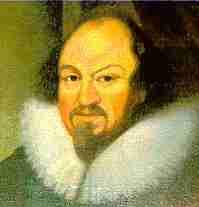Sarah Boyle (1609–1633)
| The Earl of Cork | |
|---|---|

The 1st Earl of Cork
|
|
| Born |
13 October 1566 Canterbury, Kent, England |
| Died | 15 September 1643 (aged 76) |
| Title | 1st Earl of Cork |
| Tenure | 1629–1643 |
| Known for | Plantations of Ireland |
Richard Boyle, 1st Earl of Cork (13 October 1566 – 15 September 1643), also known as the Great Earl of Cork, was an English politician who served as Lord Treasurer of the Kingdom of Ireland.
Boyle was an important figure in the continuing English colonisation of Ireland (commenced by the Normans) in the 16th and 17th centuries, as he acquired large tracts of land in plantations in Munster in southern Ireland. Moreover, his sons played an important role in fighting against Irish Catholic rebellion in the 1640s and 1650s, assisting in the victory of the British and Protestant interest in Ireland.
In addition to being the first Earl of Cork, he was the patriarch of the Boyle family through his many prominent descendants, whose titles included Earl of Orrery (1660), Earl of Burlington (1664), Earl of Glasgow (1703) and Earl of Shannon (1756).
Boyle was born at Canterbury on 3 October 1566, the second son of Roger Boyle (d. 24 March 1576 at Preston, near Faversham in Kent), a descendant of an ancient landed Herefordshire family, and of Joan (15 October 1529 –20 March 1586), daughter of John Naylor, who were married in Canterbury on 16 October 1564. Both are interred in an Alabaster tomb in the upper end of the Chancel of the parish church of Preston.
Young Boyle went to The King's School, Canterbury, at the same time as Christopher Marlowe. His university education began at Bennet (Corpus Christi) College, Cambridge, England, in 1583. After this he studied law at the Middle Temple in London and became a clerk to Sir Roger Manwood, Kt., who was then the Lord Chief Baron of the Exchequer.
...
Wikipedia
